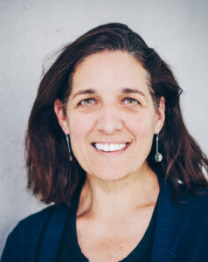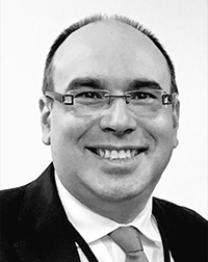
Conventional plastics, bio-based and biodegradable plastic alternatives, and non-plastic substitutes each have crucial roles to play - and complex trade-offs to navigate - in today’s materials landscape. While the INC process primarily targets controls on conventional plastics, it also reverberates through markets for alternative and substitute materials, influencing their global trade dynamics and incentives for end-of-life recovery and recycling.
Environmental assessments and beach cleanups consistently highlight lightweight films, packaging, straws, and similar single-use items as a disproportionately large source of plastic leakage into nature - even though these products represent only a small fraction of total polymer production. This imbalance raises an important question:
- Can regulation favoring sturdier, reusable applications bridge the gap between those calling for strict limits on primary plastic production and those championing material/product innovation?
- How do we ensure that “biodegradable” or compostable alternatives, especially in regions without industrial composting facilities, are properly labeled, marketed, and compatible with existing recycling systems, so they don’t inadvertently undermine waste-management infrastructure?
As members of the WTO Dialogue on Plastics engage with the World Customs Organization in updating the Harmonized System for 2027, improved goods classification can enable more targeted policies. These may prioritize reusables, durable materials, and plastic products with better circularity and lifecycle performance.
INC-5.2 refers to the second part of the fifth session of the Intergovernmental Negotiating Committee (INC-5.2), focused on developing a global legally binding instrument on plastic pollution. It is scheduled to take place in Geneva from August 5 to 14, 2025.
The meeting is a continuation of efforts to reach a global treaty to address plastic pollution, including in the marine environment, following the initial INC-5 session in South Korea in late 2024.
INDICO REGISTRATION (MANDATORY FOR UN BUILDING ACCESS)
Programme
Introductory Remarks: Mr. Henrique Pacini, UNCTAD
Moderator: Ms. Noelia Garcia, International Organization for Standardization (ISO)
- Mr. David Vivas Eugui, Chief, Blue and Circular Economy Unit
- Mr. Anindya Mukherjee, Co-Founder, GO!PHA
- Mr. Thomas Phillipon, CEO, TotalEnergies Corbion
- Mr. Adrian da Costa, ExxonMobil Product Solutions
- Mr. Severino Lima Jr, International Alliance of Waste Pickers (tbc)

Dr. Deere Birkbeck is Director of the Forum on Trade, Environment and the SDGs (TESS), a partnership of the Geneva Graduate Institute and UNEP, where she leads the initiative’s work to foster inclusive international cooperation on trade and sustainability. Her recent research focuses on climate change and trade, where notably she has championed the idea of an inclusive Trade Ministers Coalition on Climate, as well as the global governance of plastics and plastic pollution. She is also an Associate Fellow of Chatham House. Dr. Deere Birkbeck is the founder and Board Chair of Global Policy Reporting, a Geneva-based non-profit organisation dedicated to open access and independent news reporting, which houses Health Policy Watch (launched in 2019) and Intellectual Property Watch for the prior 15 years. She also served as an Assistant Director at the Rockefeller Foundation in New York where she was responsible for grantmaking on intellectual property, trade and sustainable development. Previously, she worked for the Global Economic Governance Programme at the University of Oxford, the International Centre for Trade and Sustainable Development (ICTSD), and the Overseas Development Council.

David Vivas Eugui is Chief of Ocean and Circular Economy Unit, a.i., Trade, Environment, Climate Change and Sustainable Development Branch, at UNCTAD.
Previously, he was a Senior Economic Affairs Officer in UNCTAD’s Trade Negotiations and Commercial Diplomacy Branch, Deputy Programmes Director at the International Centre for Trade and Sustainable Development (ICTSD), Senior Attorney at the Center for International Environmental Law (CIEL), Attaché for Legal Affairs at the Mission of Venezuela to the World Trade Organization (WTO) and Staff Attorney at the Venezuelan Institute of Foreign Trade. David is an international expert with more than 20 years of experience on legal and economic issues.
He has worked as an advisor and consultant for various institutions, international and national organizations and has lectured on intellectual property, trade, oceans economy and environmental law at the University of Strasbourg (CEIPI), Universidad de Buenos Aires (Argentina), Universidad Javeriana (Colombia), Maastricht University (the Netherlands), WIPO Distant Learning Academy, and University of Business and International Studies (Switzerland).
He holds a JD from the Universidad Catolica Andres Bello, an LLM from Georgetown University and a Master in Transnational Business from the Universidad Externado de Colombia.


